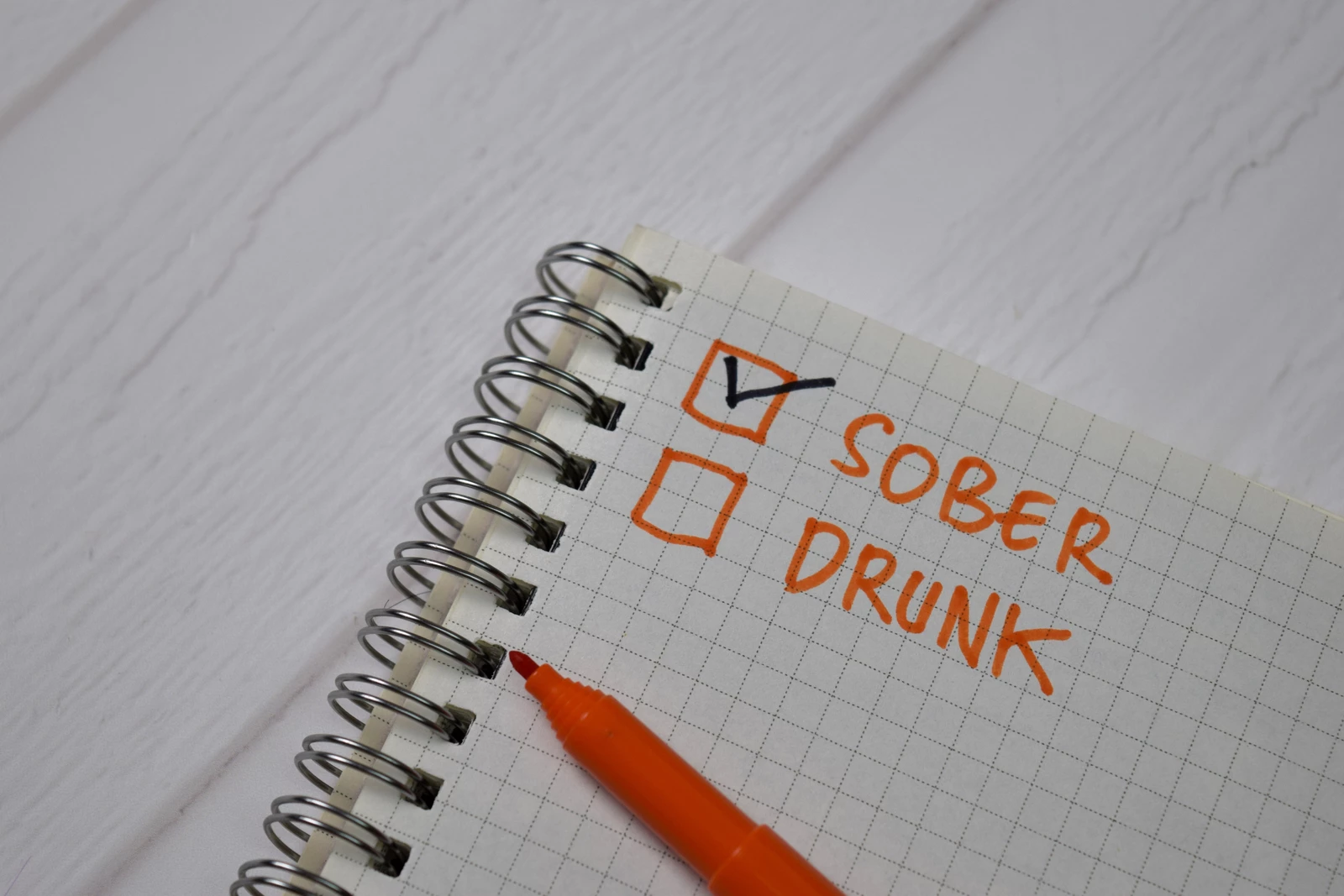Committing to any sort of change is challenging, and if you’re experiencing fear about going to rehab, you’re certainly not alone! We often don’t know exactly what will happen behind those doors, and we might have misconceptions about how punishing it will be. That, coupled with having to quit the habit or habits that we’ve used to cope with life, is enough to put some people off reaching out for help.
However, rehab is nothing to fear; it’s a chance at a brand new life. There is no boot camp, hardline doctors, or ‘breaking you down to build you back up again’. It’s a supportive environment where you can learn, discover the best version of yourself, and build the foundations for a life beyond your wildest dreams.
What Are the Main Issues That Keep People From Going to Rehab?
When we’re seeking help for substance use disorder, there are a few common reasons why people are scared to go to rehab. The fear of rehab itself can be a barrier to seeking treatment, as misinformation and misconceptions can make us worry. We might be scared about entering rehab as it is an entirely unfamiliar environment, fear losing our autonomy, or be unsure how the treatment process works.[1]
Additionally, the stigma surrounding addiction or mental health can also make us scared to go to rehab, as people often are concerned about being judged by others or that they’ll somehow fail treatment.[2]
[1] Resource: Boroumandfar, Z., Kianpour, M. & Afshari, M. Ups and downs of drug rehab among women: a qualitative study. BMC Women’s Health 20, 77 (2020). https://doi.org/10.1186/s12905-020-00946-2
[2] Resource: Knaak, Stephanie et al. “Mental illness-related stigma in healthcare: Barriers to access and care and evidence-based solutions.” Healthcare management forum vol. 30,2 (2017): 111-116. doi:10.1177/0840470416679413
How Will My Friends and Family React to Me Going to Rehab?
People are often pleasantly surprised about friends’ and families’ reactions to them seeking treatment. While they may initially feel scared to tell them, friends and family are usually quite relieved their loved one is getting the help they need.
Even though you may have been trying to keep your substance or alcohol use a secret, the signs are usually more apparent than you think, and our closest people are often very worried. While we may think rehab will change the dynamic of relationships or provoke uncomfortable conversations, in truth, it can actually help forge a path for openness and understanding.
Ask yourself this; would you hold it against someone who wanted to recover and build a better life? The chances are you wouldn’t, as you’d want them to have a chance to be truly happy.

I’m Afraid of Going Through Drug and Alcohol Withdrawal
If you’re choosing professional treatment, there’s a good chance you’ve tried to quit on your own and know what withdrawal symptoms feel like. The good news is that a medical detox can make this easier. With opioids, we can use medication that we taper down as you progress, making the process more bearable.
If you’re using benzos or alcohol, we can give you medication to ensure you’re safe and comfortable while your brain adjusts to functioning without substances. It’s important to remember that you should always seek professional advice before detoxing from these substances, as unmedicated detoxes increase the risk of seizures and other serious side effects.
I’m Scared That I Won’t Be Able to Stay Sober

Many clients come through our doors with a long history of relapse; however, sobriety is nothing to fear. Even if it seems impossible right now, the figures are in your favor. Seventy-five percent of Americans who report having a former substance use issue define themselves as being in recovery – that’s over 27 million people.[3] The same study also found that receiving treatment improves your chances of successful recovery.
[3] Resource: Jones, Christopher M., et al. “Prevalence and Correlates of Ever Having a Substance Use Problem and Substance Use Recovery Status among Adults in the United States, 2018.” Drug and Alcohol Dependence, vol. 214, 2020, p. 108169, https://doi.org/10.1016/j.drugalcdep.2020.108169.
I’m Scared of Facing My Emotions Without Drugs and Alcohol
It’s an old joke in the recovery community; the best and worst thing about sobering up is getting your feelings back! It’s completely understandable; if you’ve been using substances to mask how you feel for an extended period, you will be unsure how it will feel. The good news is that recovering from substance misuse is an amazing transformative journey where you’ll get back in touch with your true self and, this time, be equipped with the coping strategies to take the good along with the bad.
I’m Afraid Rehab Will Affect My Career or Job Prospects
Substance or alcohol use disorder is a recognized condition in the DSM-5, and various laws protect your employment while you attend an inpatient treatment center. For our American clients, the FMLA or Family and Medical Leave Act allows you to take up to 12 weeks of protected unpaid leave to tend to health concerns – and treatment is included in that.

Addiction treatment is also covered under the Americans with Disabilities Act (ADA), ensuring you can’t be fired for attending treatment during your vacation time. However, it’s important to remember that these legal protections won’t cover you if you’re disciplined for being under the influence during working hours.
Legalities aside, employers are human too and will likely have had some experience of being affected by addiction – either through a previous employee, friend, partner, or family member. Also, addiction threatens more than just your immediate job; you risk your health, relationships, professional reputation, and, ultimately, your life.
Your health is your most valuable asset; if you focus on that, the rest will follow.
I’m Scared of Rehab Because I’ll Never Be Happy Sober
If you’re researching rehab treatment or are being asked to think about it by someone close to you, the chances are that you’re already experiencing some of the low points that addiction has caused. Any sudden lifestyle change can seem overwhelming, so engaging in a structured and understanding treatment program can make a huge difference.
Addiction treatment is a new start; you’ll have the support of a team of highly qualified professionals while you re-calibrate and learn healthy coping skills. While it’s not true that being in recovery means you’re always happy, it does mean you don’t have to drink or use other substances. You’ll experience life’s natural highs and lows without the extreme fluctuations that using substance misuse causes.
I Don’t Know What To Expect
One of the most common fears when considering rehab is the fear of the unknown – not knowing what to expect can be frightening. However, rehab is here to help rather than punish you and is designed to be as supportive, encouraging, and effective as possible.
First and foremost, rehab provides a structured environment to get the help you need to overcome alcohol or substance use disorder. This can involve a medical intervention to manage withdrawal symptoms when necessary, psychological therapies to address the root causes of your addiction, and activities designed to help you discover new ways to have fun while sober.
Another part of rehab people often don’t expect is the sense of community. You’ll be surrounded by people going through similar experiences, which allows you to create deep and meaningful bonds. These relationships can be just as transformative as any therapeutic process, as you learn to be open, trust again, and communicate your true feelings.
How to Overcome the Fear of Going to Rehab
Rehab may seem scary, but many people before you have done it, and there’s no reason you can’t join them! Here are some steps to help you overcome your fears and embrace the path to recovery:
- Education: One of the best ways to overcome the fear of going to rehab is to understand what it entails. Read books and blogs, watch videos or speak to professionals. Remember, treatment centers offer a service run by compassionate staff – they’ll happily answer your questions!
- Connect with mutual aid groups: Engaging with support groups like the 12-step fellowships can help you meet others who have been through treatment and also has the added bonus of helping you to pre-build a support network before you even enter rehab.
- Therapy: Consider pre-rehab counseling. A therapist can help you understand and overcome your fears before you commit to treatment.
- Remind yourself of the reasons why: Whenever fear creeps in, remind yourself why you’ve chosen to seek help. The decision to go to rehab is a brave one and is the first step towards a healthier, happier life.
Remember, it’s your journey, and feeling scared is okay. While you’re entrusting the rehab to provide the environment, how you approach it determines your outcome. Even considering that you might be nervous is a step in the right direction; mentally, you’re already trying to figure out how to overcome it!
Why Going to Rehab Is Key in Overcoming Addiction

The decision to go to rehab is often the first step on the journey towards recovery. It is a crucial step in acknowledging that you need help – and that it’s okay to seek it. Going to rehab can be a lifesaver, a place of refuge, a source of strength, and ultimately, a path to reclaiming your life.
Rehab isn’t just about stopping substance use; it’s about learning to manage life on life’s terms.
Trying to overcome addiction on your own can be extremely difficult. The physical withdrawal symptoms, the emotional turmoil, and the constant psychological cravings can make it seem almost impossible to stop using. That’s where a well-structured treatment program comes in.
Overcoming addiction can be challenging at times, so when you engage in rehab, you’re not alone. You are surrounded by trained professionals who understand what you’re going through and are equipped to provide the necessary support and treatment.
How Addiction Treatment Can Help You Manage Your Fears
Taking the first step towards addiction treatment can be one of the most empowering decisions you will ever make. It’s a brave recognition of your need for help and a commitment to change.
Let’s acknowledge that courage. The decision to confront your addiction, step into the unknown, and entrust your recovery to professionals shows strength and resolve. Fears and anxieties are completely natural throughout the recovery journey. Still, know this: the treatment program you will be part of is designed to help you navigate these fears.
In a dedicated addiction treatment program, you will find a supportive environment ready to help you face these fears. The team understands your concerns and will work closely with you to ensure you always feel safe, heard, and cared for. They don’t just focus on treating the physical aspect of your addiction; they are equipped to help you navigate the emotional turmoil it brings.
By getting the help you need through a treatment program, you are not just overcoming your addiction; you are also learning to manage your fears. It’s not just about becoming sober; it’s about becoming stronger, more resilient, and more equipped to deal with life’s ups and downs.
This is a transformation, a fresh start, an opportunity to learn and grow.
Bad Experiences With Drug Rehab in the Past
Don’t let past negative experiences deter you from your recovery journey. Each drug rehab experience is unique, and finding the right fit is essential. Look for a center that offers a compassionate and inclusive program of recovery. Additionally, find one with a thorough assessment process, and don’t be shy about bringing up your concerns with the admissions staff.
Remember, past experiences do not define you; your resilience and commitment to trying again does.
What Is Fear of Success?
Fear of success might seem paradoxical, but it’s a real issue. It’s apprehension about the changes success could bring, like new responsibilities or expectations, and we might also worry about losing friends we used to use with or losing part of our identity.
That said, completing rehab and achieving sobriety also brings a world of joy, health, and personal growth, so trust in your ability to handle it – you’ve worked hard and deserve to enjoy it.
Embrace this success; it is a testament to your strength, resilience and potential. Every step forward, no matter how small, is a victory worth celebrating.

How to Overcome the Fear of Success
Overcoming the fear of success in sobriety starts with reframing your thoughts. Here are a few tips to help you on your journey:
- Instead of viewing success as a burden, see it as a beautiful transformation you’ve earned through your hard work and determination during treatment.
- Keep reminding yourself that you are deserving of a successful, sober life.
- Build a strong support network around you that bolsters your confidence and alleviates your fears.
- Engage in mindfulness practices to handle anxieties, and consider counseling to address underlying fears.
How Do You Deal With Recovery Anxiety?
Dealing with recovery anxiety is part of the healing process, and mindfulness is a powerful tool for managing this. Mindfulness allows you to be present in the moment, accepting your feelings without judgment. This practice can significantly reduce anxiety by shifting focus away from future uncertainties to the calmness and tranquility of the current moment.
By engaging in mindfulness exercises regularly, such as meditation or controlled breathing, you can learn to navigate and reduce feelings of anxiety. Recovery is a journey, not a destination, and mindfulness will help illuminate the path to sobriety with a sense of peace and acceptance.
Frequently Asked Questions
What is the fear of relapse?
Fear of relapse is the anxiety stemming from the potential of returning to substance use after a period of recovery. This fear is common among individuals in recovery due to the chronic nature of addiction, but with the correct aftercare and recovery program, it doesn’t have to be a reality.
What is the fear of missing out in recovery?
The fear of missing out in recovery – often referred to as FOMO – is the apprehension that while we’re not drinking or using, we’re missing out on fun. However, looking at the past with rose-tinted glasses can be dangerous, and it’s important to remember what led you to rehab in the first place. Also, recovery is the perfect way to find non-destructive ways to enjoy yourself, and anyone who is a true friend will fully support you.
What causes the fear of missing out?
The fear of missing out is often caused by a sense of isolation and the perception that others are leading happier and more fulfilling lives. This feeling is magnified in the digital age due to the prevalence of social media.
What are five coping skills for anxiety?
Five coping skills for anxiety include:
- Deep breathing exercises
- Regular physical activity
- Maintaining a healthy diet
- Practicing mindfulness
- Communicating your feelings with people you trust
What if I don’t like the rules or structure in rehab?
Rehab offers the structure needed for you to focus on your healing journey. If you don’t like the rules or structure in rehab, remember it’s temporary and is designed to help you recover. While this is often non-negotiable, it’s always recommended to voice your concerns to staff, as they will be able to explain why certain rules are in place.
Will going to rehab affect my personal identity or sense of self?
Going to rehab can impact your personal identity; however, it is usually in a positive way. You’re not losing yourself; you’re finding the healthier, substance-free version of you.
Will going to rehab affect my relationships with my significant other or children?
Rehab may temporarily affect relationships, but it’s often beneficial in the long term. Healing from addiction can lead to healthier, more fulfilling relationships with loved ones.
How will I manage financial responsibilities while in rehab?
Managing financial responsibilities during rehab can be challenging, but many facilities offer financial counseling and will allow you to take care of your outside-treatment commitments. Missing bill payments isn’t going to help anyone, and rehab rules aren’t there to make your life more challenging.
Will I lose my independence and freedom while in rehab?
While rehab may initially feel restrictive, seeing it as a path to true independence is essential. By not being chained to alcohol or substance use and the accompanying mental obsession, you’ll gain a freedom you didn’t have before.
Contact Us and Get the Help You Deserve
Don’t let fear hold you back from the help you deserve. At Crossroads Antigua, we understand the fears and uncertainties surrounding rehab. We are here to provide you with a safe and compassionate space to overcome those fears and embark on your recovery journey. Our experienced team is dedicated to supporting you in pursuing a healthier, happier life.
Reach out to us today and take that courageous step towards a brighter future. Whether you’re worried about the unknown, concerned about judgment, or afraid of the challenges ahead, we are here to address your fears and guide you through the process. Our personalized treatment programs, tailored to your unique needs, will empower you to face your fears head-on and realize the strength within you.
You don’t have to face this alone. Let us be your support system, providing the care, understanding, and expertise necessary to overcome addiction and reclaim your life. Contact us at +1 260 252 0444 to speak with our compassionate team and learn more about how we can help you overcome your fears and achieve lasting recovery.
Don’t let fear hold you back; take the first step towards a brighter future today.

